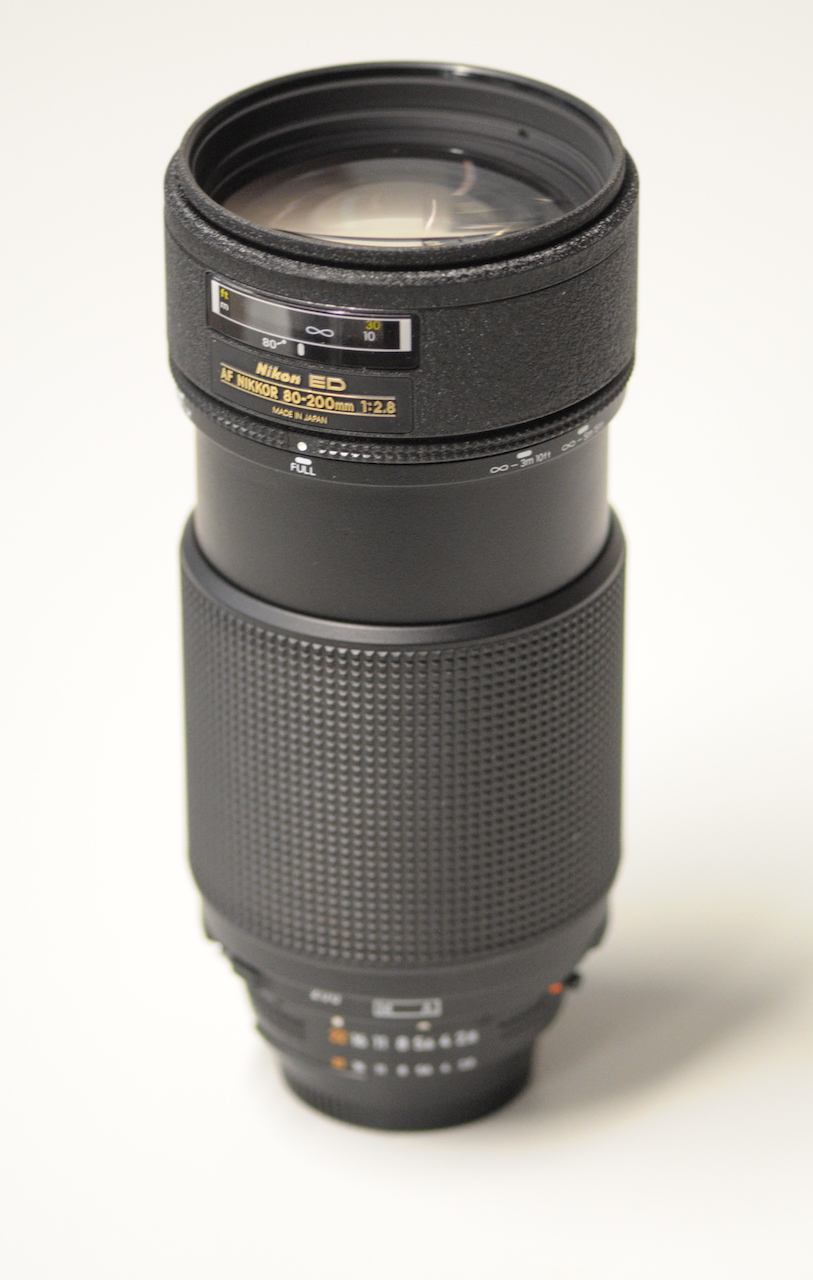Nikon 80-200: Difference between revisions
(Created page with "{{photonavbar}} <div class="flex-row row"> <div class="col-xs-12 col-md-6 col-lg-6"> class=img-responsive </div> <div class="col-xs-12 col-md-6 co...") |
No edit summary |
||
| Line 84: | Line 84: | ||
[[Category:Lenses]] | [[Category:Lenses]] | ||
[[Category: | [[Category:Zoom]] | ||
[[Category:Nikon]] | [[Category:Nikon]] | ||
{{Photodisclaimer}} | {{Photodisclaimer}} | ||
Revision as of 17:49, 3 January 2021
This is a classical professional lens, it is fast, it is big and it is heavy. Oh and it makes great pictures as well. This is probably a lens that an amateur photographer does not really need, but somehow always thinks that it will be worth the price.
A lot of what this lens has to offer is needed and much appreciated by professionals, it is fast, it is sturdy and it is reliable. That also justifies its weight and size. But for day to day use, you will have a tough time finding cases where the Nikon 70-210 or Nikon 70-300 will make worse pictures than this one at a fraction of the cost and weight.
This is again one of the equipment that I ended up using at work as it was part of the setup. While it makes great pictures, it is not a lens that I use frequently, mostly due to its weight.
Versions
There are way too many versions to list here. The recent versions moved to 70-200 but they are essentially the same family of lenses. Ken Rockwell has a cool page where he has All Nikon 80-200 and 70-200mm f/2.8 Lenses Compared.
Basically:
- Early models (like the one I pictured) are push/pull zooms
- There is still an earlier 80-200D model for sale from end of 90s, that has a rotating zoom ring.
- Newer versions are all 70-200, with different levels of vibration reduction
- There were always smaller and cheaper versions with smaller apertures f/4 and smaller.
| Price | Quite expensive |
|---|---|
| Weight | Very heavy, 1'300g |
| Good for | Portraits, animals, landscapes, sports |
| New or used | The older ED still sells for 1200, newer 70-200 is closer to 2000, older lenses can be had around 300, but there are many similar models. |
This is a great lens made for professional use, so it makes sense to use this on a higher end full frame camera. The main problem I have is the weight. You will almost certainly need a second lens/camera when you have this zoom so the weight is not only this lens, but the additional things you will have to carry.
For a more amateur use, I would say the Nikon 70-210 or Nikon 70-300 are slower but much lighter (and also cheaper).
Well.. if you have scored a used version of this on the cheap, why not try on an APS-C camera to have a 120-300mm lens at f/2.8. Older versions do not even have vibration reduction, so if you compare this against a cheaper Nikon 70-300 you will look have a hard time with this lens. Do not get me wrong, it makes excellent pictures, but it is not a sensible match. That is 1.3kg you will end up carrying around.
Gallery
These pages are for Amateur Photographers and not really for seasoned photographers and professionals. I have no affiliation or commercial interest with any brand/make. I write from my own experience. I ended up using mainly Nikon, so I am more familiar with this brand than others. See price for notes on pricing as well as photography related links.




